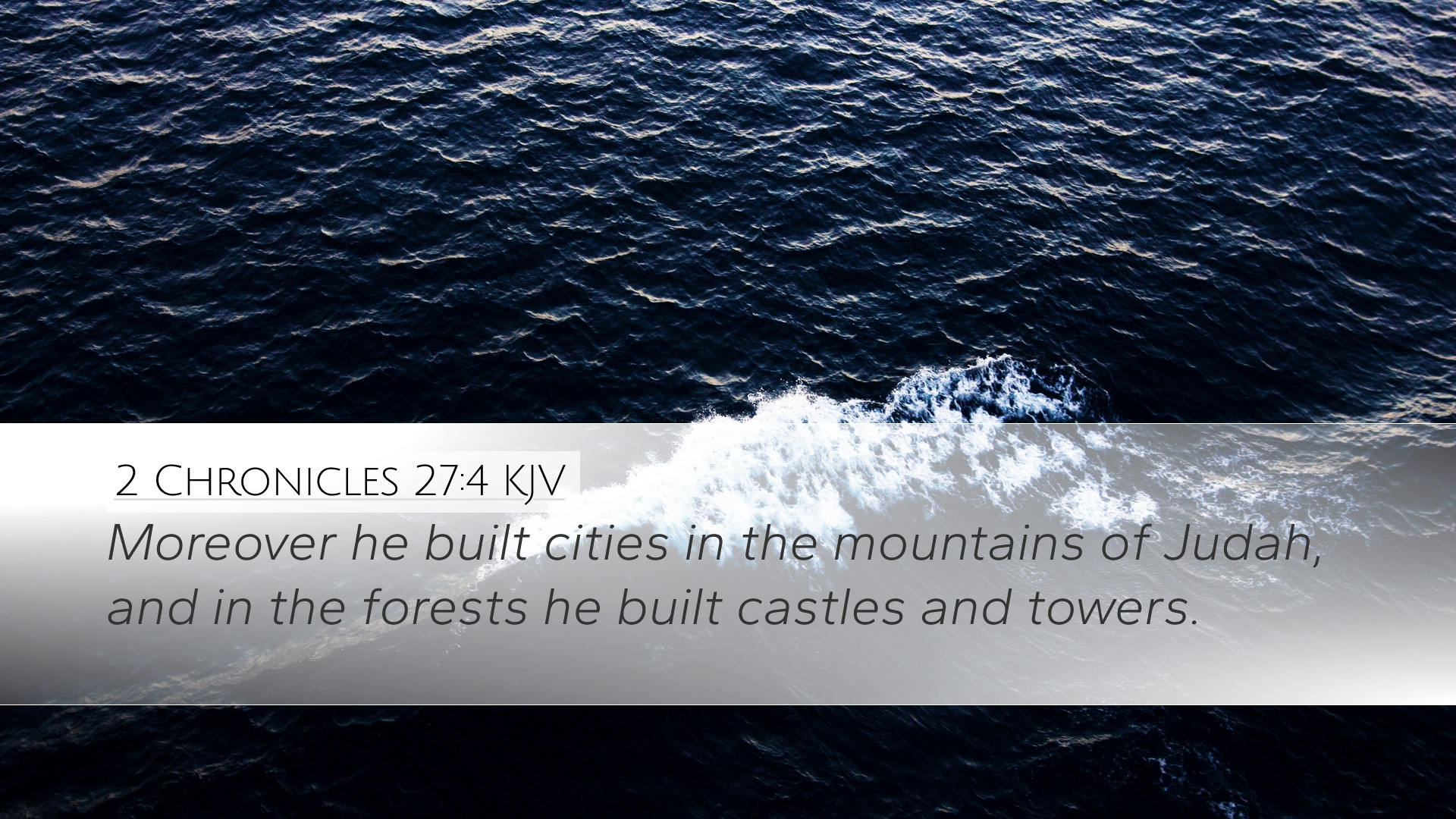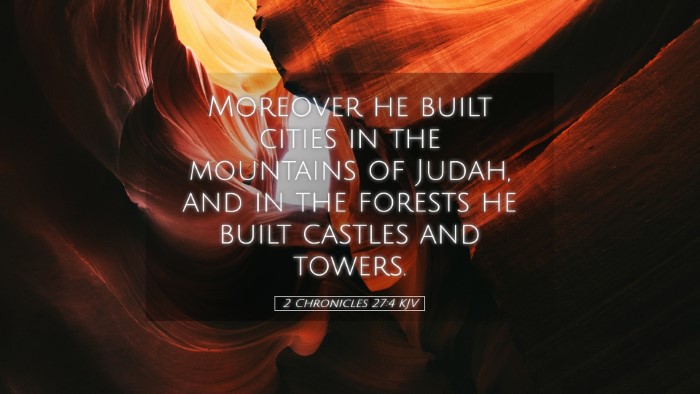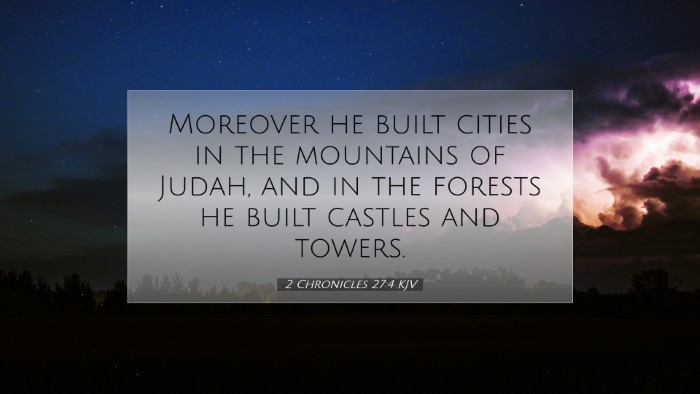Commentary on 2 Chronicles 27:4
2 Chronicles 27:4 states, “Moreover he built cities in the mountains of Judah, and in the forests he built castles and towers.” This verse speaks volumes about King Jotham’s reign and his actions that reflected both political strategy and spiritual significance.
Context of the Verse
Jotham, son of Uzziah, ascended to the throne of Judah during a tumultuous time. His father, though initially righteous, had ultimately fallen into pride, leading to a breach between himself and God. Jotham’s ascent comes after a period of instability, with his father's leprosy marking a stark contrast to a reign based on faithfulness and obedience.
Insights from Matthew Henry
Matthew Henry emphasizes that Jotham built cities in the mountains of Judah, suggesting a foresight in preparing for defense against foes. Mountains symbolized strength in biblical terms, representing God's powerful protection and the fortifications of the people of God. Jotham was prudent in ensuring that his people were secure, especially noting that the cities were built in strategic locations.
- Defense and Strategy: The mountains were not only a physical protection but also a spiritual metaphor for relying on God’s strength.
- Resource Utilization: Building in the forests implies a wise use of available resources and a strategic understanding of the environment.
Insights from Albert Barnes
Albert Barnes provides additional clarity by detailing the importance of these structures. The phrase “castles and towers” indicates a dual purpose: defense and visibility. Towers served as lookouts for impending danger, emblematic of the spiritual vigilance required in leadership.
- Vigilance: Just as these towers kept watch against enemies, so too must leaders maintain vigilance over their spiritual and communal affairs.
- Preparation: Jotham’s actions reflected a preparation for both earthly and spiritual battles, building not just for the present but for future stability.
Insights from Adam Clarke
Adam Clarke highlights the importance of the “mountains” and “forests,” indicating that Jotham recognized the potential for both defense and prosperity in these areas. Clarke points out that this suggests an industrious character and a dedication to the welfare of his kingdom.
- Industriousness: Jotham's building efforts signify a proactive approach to governance, where one does not merely rely on inherited stability.
- Spiritual Implications: Building in forests may indicate a cultivation of Godliness within the natural world, fostering a connection between the spiritual and the physical.
Theological Significance
Taking insights from these commentaries, the verse reveals profound theological implications. Jotham's actions can be viewed as a metaphor for the spiritual life of believers. Just as he built with foresight and discernment, Christians are called to build their spiritual houses wisely on the Rock of Jesus Christ.
- Foundation on Christ: In constructing our lives, we must prioritize a foundation built on faith, akin to the cities built by Jotham.
- Spiritual Vigilance: The watchtowers remind believers to remain alert to the schemes of the enemy, echoing the call in Scripture to be sober and vigilant.
- Resource Stewardship: Jotham's wise use of the resources available reflects a stewardship principle that resonates with Christian ethics. We are entrusted with gifts and responsibilities to build up the body of Christ.
Conclusion
In conclusion, 2 Chronicles 27:4 serves as a rich source of reflection for pastors, students, and theologians. The commentary provided by Matthew Henry, Albert Barnes, and Adam Clarke underscores the multifaceted dimensions of Jotham’s reign. His actions not only secured the physical realm but stand as a testament to the spiritual diligence expected of all who seek to lead in the way of the Lord.


